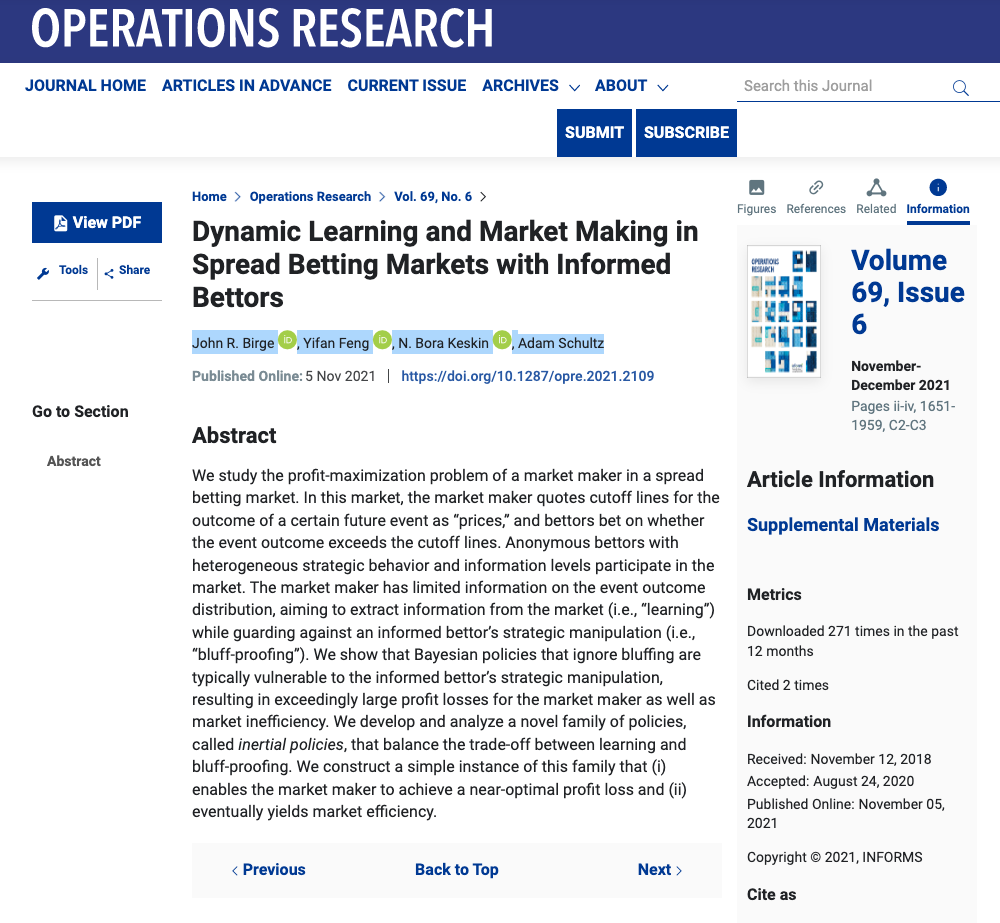We study the profit maximization problem of a market maker in a spread betting market. In this market, the market maker quotes cutoff lines for the outcome of a certain future event as “prices,” and bettors bet on whether the event outcome exceeds the cutoff lines. Anonymous bettors with heterogeneous strategic behavior and information levels participate in the market. The market maker has limited information on the event outcome distribution, aiming to extract information from the market (i.e., “learning”) while guarding against an informed bettor’s strategic manipulation (i.e., “bluff-proofing”). We show that Bayesian policies that ignore bluffing are typically vulnerable to the informed bettor’s strategic manipulation, resulting in exceedingly large profit losses for the market maker as well as market inefficiency. We develop and analyze a novel family of policies, called inertial policies, that balance the tradeoff between learning and bluff-proofing. We construct a simple instance of this family which (i) enables the market maker to achieve a near-optimal profit loss and (ii) eventually yields market efficiency.

